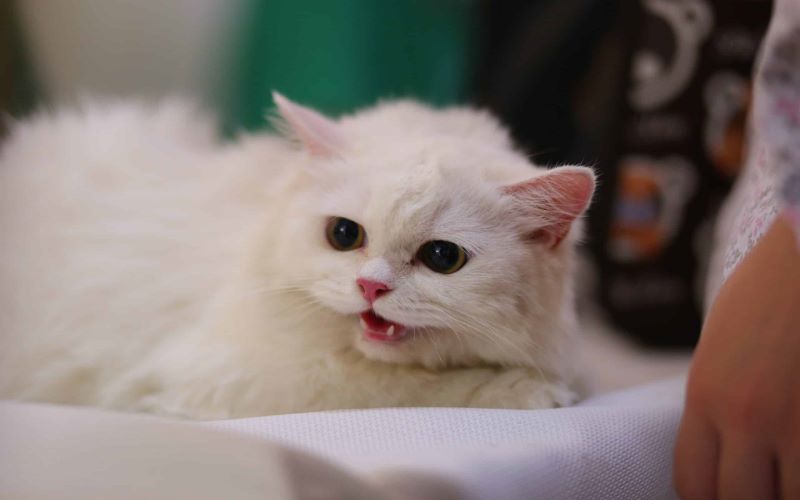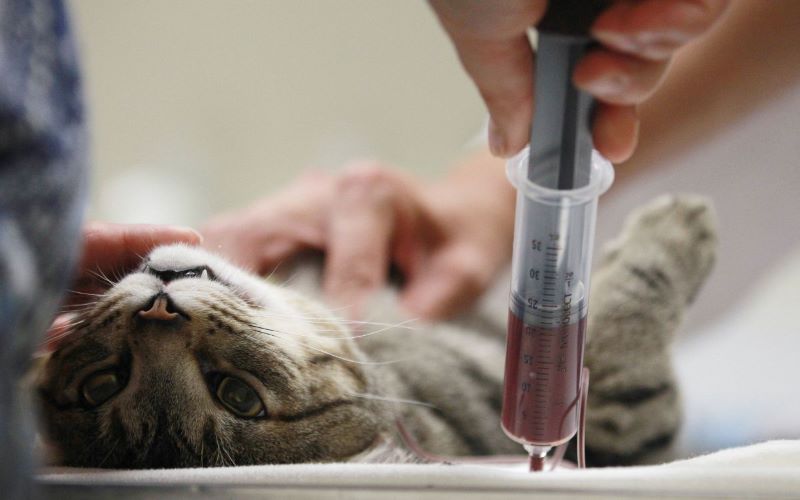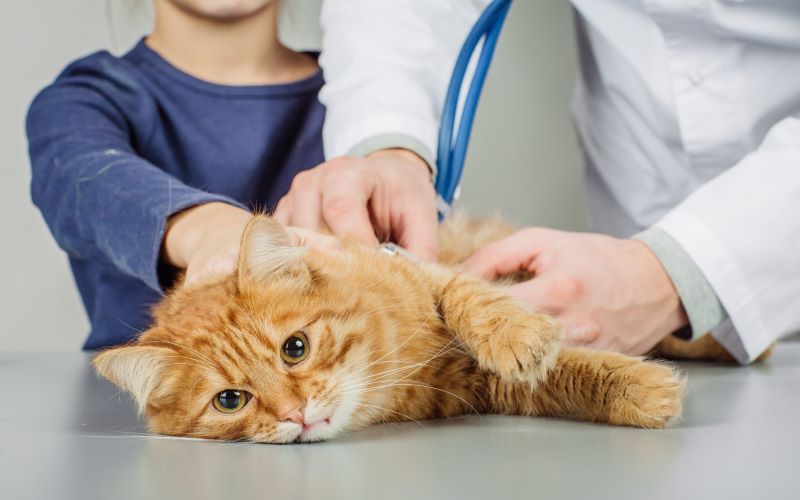Feline Immunodeficiency Virus (FIV) is a serious condition that can affect your cat’s health. It’s important to be able to recognize the signs and symptoms of FIV and take prompt action to treat and care for your furry friend. FIV is a dangerous and common condition in cats, and the following article will provide you with all the information you need to know about it, so you can better care for and protect your beloved pet.
1 What is Feline Immunodeficiency Virus (FIV) and How is it Transmitted?
Feline Immunodeficiency Virus (FIV) Explained:
Feline Immunodeficiency Virus (FIV) is an infectious disease caused by a retrovirus. Cats infected with this virus lose their immune capabilities, becoming more susceptible to other viruses and bacteria, increasing the risk of infections and cancer.

How is FIV Transmitted?
The FIV virus is only transmitted from cat to cat through bite wounds, with the infected cat’s saliva entering the bloodstream of the bitten cat. It is not transmissible to other animals or humans, nor can it be contracted through food or respiratory means.
Additionally, mother cats can rarely transmit FIV to their kittens during pregnancy or while nursing. The FIV virus is easily neutralized by high temperatures, ultraviolet rays, and common disinfectants.
Further Reading: Learn more about the signs, treatment, and prevention of FIV.
2 Stages and Symptoms
Infected cats go through three distinct stages of FIV:
Initial or Acute Stage: This stage typically occurs 4-6 weeks after exposure to the virus and is characterized by fever, swollen lymph nodes, skin sensitivity, and gastrointestinal infections.
Second Stage or Asymptomatic Stage: During this stage, there may be no noticeable symptoms, but the cat’s immune system is being severely compromised. This period can last for several years.

Third Stage or End Stage: This stage is most common in cats aged 5-12 years old. By this point, the cat’s immune system has been severely damaged, and the virus has killed off immune cells. Infections become more frequent, and the cat’s overall health deteriorates over time, with treatments becoming less effective.
Infected cats are highly susceptible to various infections, including dental, respiratory, eye, gastrointestinal, skin, and ear infections, as well as neurological issues, anemia, and cancer.
3 Diagnosing FIV in Cats
To determine if your cat has FIV, screening and confirmatory tests are available, known as the ELISA and Western Blot methods, respectively.

It is recommended to test your cat for FIV in the following situations: if they display initial signs of FIV infection, when introducing a new cat to your household, if they live in an area with FIV-positive cats, or after potential exposure to an infected cat.
Keep in mind that it takes at least 8 to 12 weeks after infection for FIV antibodies to be detectable. Therefore, retesting your cat after this period is crucial to confirm the diagnosis.
4 Treating FIV in Cats
Treating FIV can be challenging because cats often carry the virus without showing any signs or symptoms. Throughout the treatment process, your cat will require special care and a nutritious diet, along with antibiotics to prevent opportunistic infections.

Male cats are twice as likely to be infected as female cats, so neutering is recommended to reduce the risk of fighting and bacterial infections. Additionally, isolating infected cats can help prevent the spread of the virus to other cats in the household.
When caring for an FIV-positive cat, it’s best to avoid feeding them raw foods like , ,, , and especially unpasteurized milk, to minimize the risk of bacterial or parasitic infections.
Maintaining your cat’s hygiene and regularly treating them for fleas and mites is also essential.
5 Preventing FIV in Cats
The best way to reduce the risk of your cat contracting FIV is to keep them indoors and away from infected cats. If you do take your cat outdoors, use a leash to maintain control and prevent potential encounters with infected cats.

When visiting other people’s homes with cats, ensure their cats have tested negative for FIV. Similarly, if you’re introducing a new cat to your household, have them tested beforehand.
We hope this article has given you a comprehensive understanding of Feline Immunodeficiency Virus (FIV) and how to protect your cat from this dangerous condition. With this knowledge, you can better prevent, treat, and care for your furry companion, aiding their recovery if they ever contract FIV.
Further Reading:
>>
>>
>>









